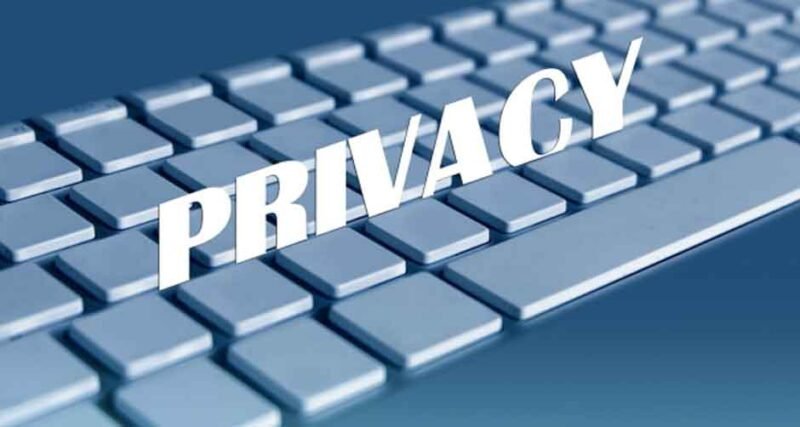
Online privacy will hit rock bottom in 2023, plagued by an alarming number of 1,393 data breaches in a mere six months. These breaches exposed the private information of over 156 million Americans. Among the most severe cases, the MOVEit data transfer breach granted hackers unauthorized access to the healthcare data of millions of patients in Missouri, Oregon, and beyond.
While maintaining a “private life” online becomes increasingly challenging, it remains within reach. By implementing a few steps and reinforcing security measures, you can safeguard your privacy, deter hackers and identity thieves, and regain control of your personal data.
#1 Think Twice
Companies and individuals persistently demand your personal data, both online and in person. Before divulging any information, question the purpose, user, and utilization of the data. Keep in mind, that the Internet has an unfailing memory; once exposed, control over its destiny becomes challenging. Thoughtfully contemplate the potential consequences your comments or images may impose on your reputation and that of others.
#2 Share Less Information
To safeguard your information from online scammers, it is crucial to limit its sharing. Begin by scrutinizing social networks, and ensure you are aware of the data collection policies of any app or service you utilize. Social media platforms and apps gather data on your identity, interests, and online activities, forming your digital trail. This information can be exploited by scammers to access your sensitive data. Disappointingly, the vigilance in handling your data is often insufficient to meet your expectations.
#3 Use a VPN
To protect data, you can use a VPN – a tool that was created specifically to increase anonymity and data privacy. You should choose a no-log VPN, which does not collect personal information about its users. A similar approach is followed by VeePN – one of the technically advanced VPN services with a powerful system for storing data and protecting against various Internet threats.
#4 Create Strong Passwords
When you create a password, go beyond easily guessable words or numbers like your birthday that a cybercriminal could figure out. Instead, choose combinations of upper and lower-case letters, numbers, and symbols, and change your password regularly. It’s also advisable to create a unique password for each site instead of using the same one across multiple sites. To help you keep track, consider using a password manager tool.
#5 Protect Your Devices
To safeguard your online privacy, take proactive measures. Ensure that you password-protect your computer, smartphone, and other mobile devices. Only download content from esteemed sources. Install and regularly update the latest operating system, anti-virus, anti-spam, and firewall programs. When using public networks, exercise caution as data becomes vulnerable in open wireless networks. Maintain security by using a virtual private network to transmit and receive data. Disable Wi-Fi and Bluetooth when not in use. Never leave mobile devices unattended.
#6 Remove Unused Mobile Apps
At any given time, apps and browser extensions reserve the right to modify their security and privacy policies. It is advisable to delete or remove tools that are not actively being used.
For instance, Unroll.me, a free app that summarizes newsletters and subscription emails, had its revenue model exposed during an investigation by the FTC. It was discovered that they scanned emails and sold the contents. If you aren’t familiar with how an app generates revenue, user data could hold the key. If you’re concerned about privacy, consider using a VPN download iOS for an added layer of protection.
#7 Adjust Your Privacy Settings
Adjustable privacy settings are available on a variety of web-enabled items, including mobile devices, browsers, sites, apps, and even video games and cameras. These settings offer control over various aspects, such as location tracking and screen locks. Browsers allow users to manage cookies and pop-ups, while social media sites and other websites empower users to dictate the personal information visible to others. It is important to avoid relying on default settings and instead regularly review and modify your privacy settings as they may change over time.
#8 Protect Yourself from Search Engine Surveillance
You produce a vast amount of personal data that is collected by your search engine. And for 92% of people, that search engine happens to be Google. The two largest search engines, Google and Bing, are also the owners of the widely-used browsers Chrome and Edge, respectively. Hence, they track an extensive amount of data.
The first step towards enhancing search engine privacy involves the deletion of your data.
- For Google: Access the My Activity dashboard and delete all your data there.
- For Microsoft: Clear your data individually for Microsoft Edge and Bing.
- For Yahoo: You have the option to delete data from search history management.
Regrettably, it is not possible to completely eliminate tracking on Google. One alternative is to switch to a privacy-focused online search engine like DuckDuckGo.
#9 Safeguard Your SIN
Protecting your privacy is crucial, and your Social Insurance Number (SIN) plays a significant role in safeguarding your personal information. It’s essential to keep your SIN confidential, as it can expose you to the risk of fraud and identity theft. Organizations should only collect and use your SIN for income reporting purposes. Remember, you are not obligated to provide your SIN just because someone asks for it.
Conclusion
You have quite a few tools to protect your privacy and personal data. How many of them have you used? If you continue to go with the flow, you are accepting risks to your digital identity and sensitive information. If you are ready to confront them, just follow the tips listed and you can reduce most risks to a minimum.

